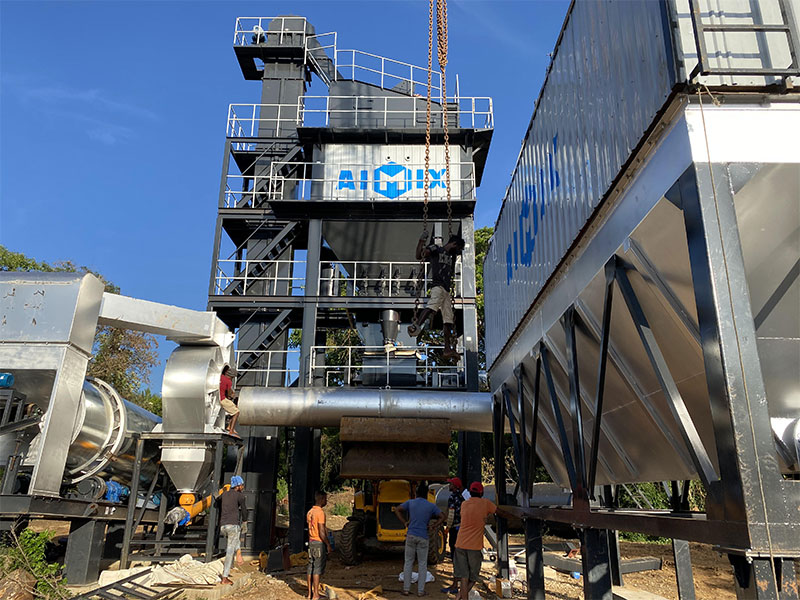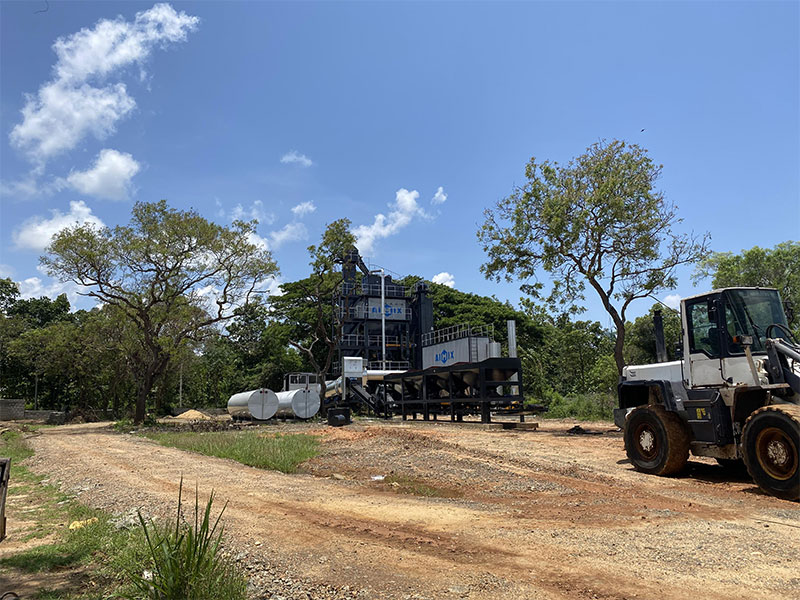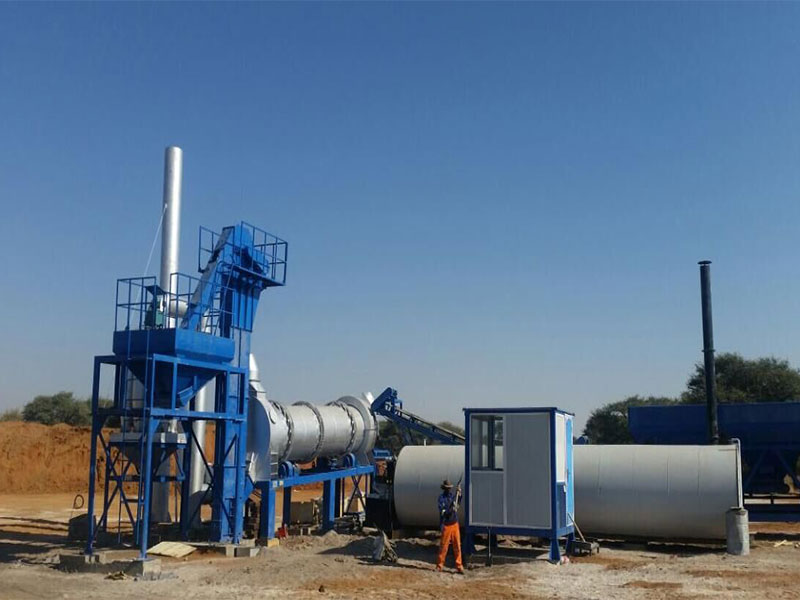Expressways, also known as highways or freeways, are the backbone of a nation’s transportation network, connecting cities, regions, and facilitating the movement of people and goods. Constructing a reliable and durable expressway requires careful planning, engineering expertise, and the use of high-quality materials. Among these materials, asphalt plays a pivotal role in creating a smooth and safe surface for vehicles to travel on. Asphalt mixing plants are the essential facilities responsible for producing the asphalt mixes required for expressway construction.
1. Quality Asphalt Production:
Asphalt is the primary material used for the surface layer of expressways. The quality of the asphalt directly impacts the performance and durability of the road. Asphalt mixing plants are responsible for producing high-quality asphalt mixes that adhere to strict specifications. These plants ensure the precise combination of aggregates, binders, and additives, resulting in asphalt that can withstand heavy traffic loads and adverse weather conditions.
2. Customized Asphalt Mixes:
Expressways often have specific design requirements depending on factors such as traffic volume, climate, and expected lifespan. Asphalt mixing plants offer the flexibility to produce customized asphalt mixes that meet these requirements. By adjusting the composition of the mix, including the size and type of aggregates, binder content, and additives, engineers can tailor the asphalt to the specific needs of the expressway project.
3. Versatility for Various Layers:
Expressways consist of multiple layers, each serving a different purpose. In addition to the surface layer, there are intermediate and base layers that provide structural support. Asphalt mixing plants can produce a variety of asphalt mixes suitable for each layer. This versatility ensures that the entire road structure is engineered for maximum durability and performance.
4. Consistent and Continuous Supply:
Expressway construction demands a continuous and consistent supply of asphalt mixes to maintain construction schedules and quality. Asphalt mixing plant amp is capable of continuous production, ensuring a reliable supply of asphalt for paving operations. This capability is essential for meeting the stringent timelines associated with expressway projects.

5. High Production Capacities:
Expressway projects often cover vast distances and require significant quantities of asphalt. Asphalt mixing plants are designed with high production capacities to meet these demands. They can produce large volumes of asphalt mixes per hour, ensuring that paving crews have a sufficient supply to keep the construction process moving smoothly.
6. Efficient Mixing and Heating:
Asphalt mixing plants employ advanced technology to ensure efficient mixing and heating of the raw materials. Precise control over temperature and mixing time is critical to achieving a uniform and high-quality asphalt mix. Efficient heating systems reduce energy consumption and contribute to cost savings, making expressway construction more economical.
7. Quality Control and Testing:
The quality of the asphalt mixes produced by the asphalt plant is subject to rigorous quality control and testing. Each batch is carefully tested to ensure it meets the specified standards and performance requirements. Quality control measures include tests for temperature, density, gradation, and durability. Consistently high-quality mixes are essential for the long-term performance of an expressway.
8. Environmental Considerations:
Modern asphalt mixing plants are designed with environmental considerations in mind. They incorporate features such as dust collection systems and advanced burner technology to minimize emissions and control air pollution. By reducing the environmental impact, expressway construction projects can adhere to regulatory requirements and contribute to sustainable development.

9. Adaptable to Varied Conditions:
Expressways can traverse diverse terrains and climates, from mountains to coastal regions. Asphalt mixing plants can adapt to these varied conditions by producing mixes that are suitable for different climates and terrains. This adaptability ensures that the resulting road is designed to withstand the specific challenges of the environment it crosses.
10. Rapid Deployment and Relocation:
Some expressway construction projects may require the deployment and relocation of asphalt mixing plants to different sections of the road. Mobile asphalt mixing plants are designed for rapid setup and relocation, making them ideal for such scenarios. This mobility ensures that the construction process can progress efficiently, even in remote or challenging locations.
11. Pavement Rehabilitation and Maintenance:
Expressways, like any other road infrastructure, require regular maintenance and rehabilitation to ensure their continued performance and safety. Asphalt mixing plants play a role not only in the initial construction but also in providing asphalt mixes for rehabilitation and maintenance projects. These plants can produce specialized mixes for resurfacing, patching, and repair work.
12. Meeting Project Deadlines:
Expressway construction projects are often associated with strict deadlines, given the importance of these roads for transportation networks. Amp mini aspal is crucial in meeting these project timelines by supplying a continuous flow of high-quality asphalt mixes. This ensures that the road is completed on schedule, reducing inconvenience to the public and minimizing construction-related disruptions.
In conclusion, asphalt mixing plants are the heart of expressway construction, providing the essential material required for building durable and reliable road surfaces. Their ability to produce high-quality, customized asphalt mixes, their versatility for different layers, and their capacity for continuous production are essential for meeting the unique demands of expressway projects. Additionally, their environmental considerations, adaptability to varied conditions, and role in rehabilitation and maintenance contribute to the long-term success and sustainability of expressways. Asphalt mixing plants are, without a doubt, a fundamental component in the development of expressway infrastructure, enhancing connectivity, safety, and economic growth.

